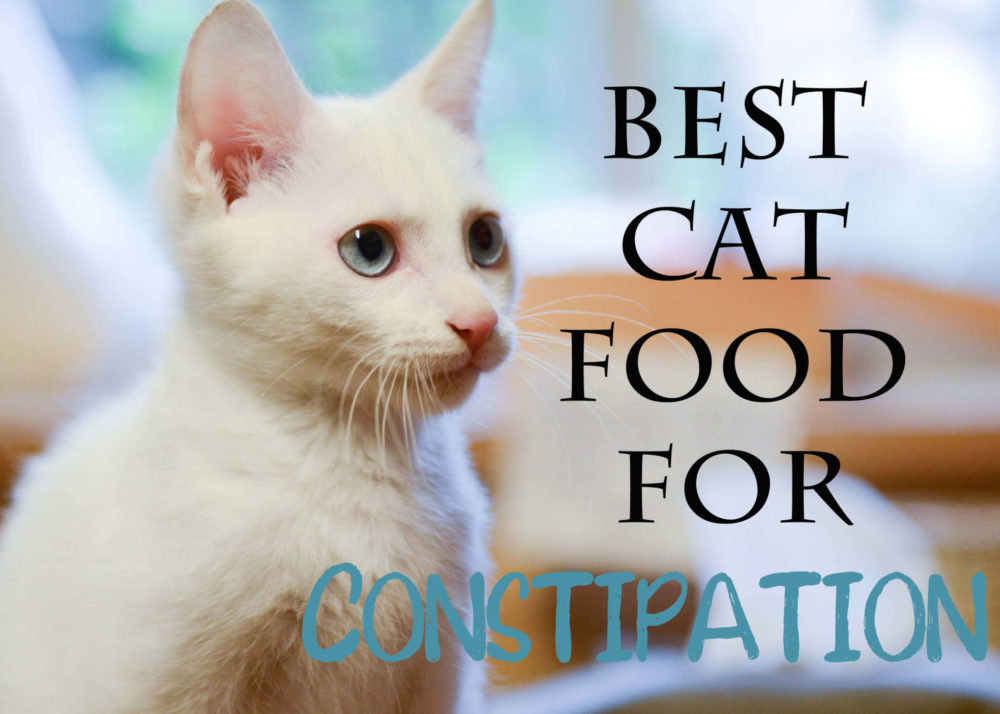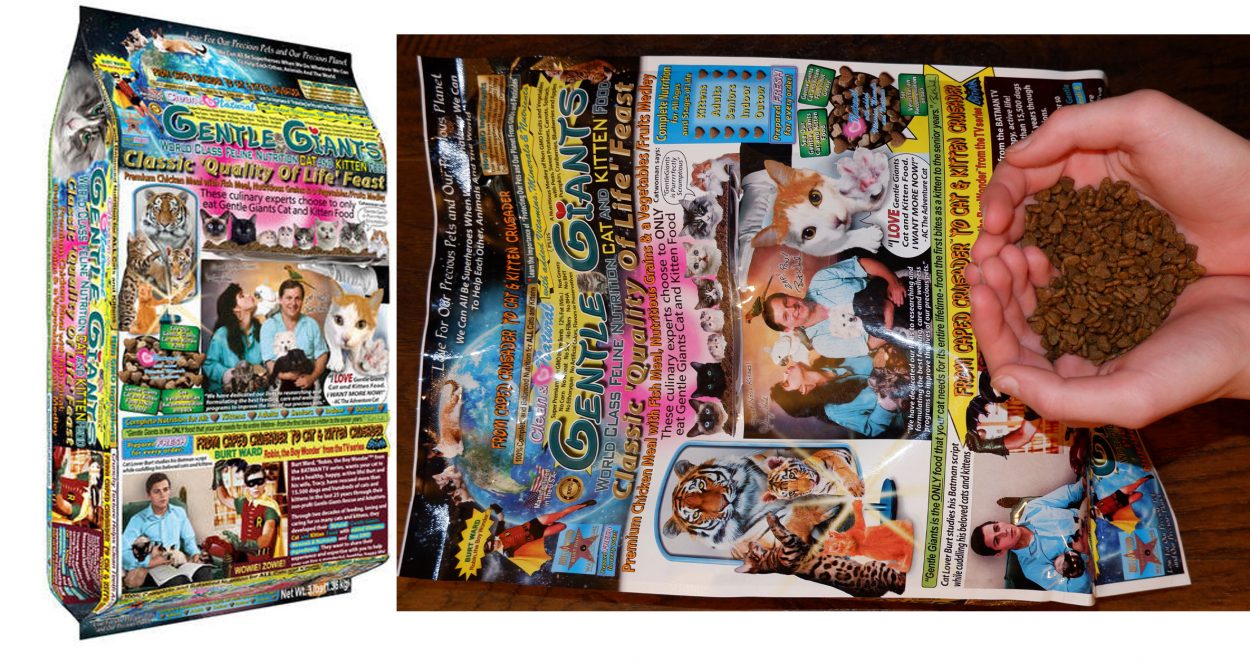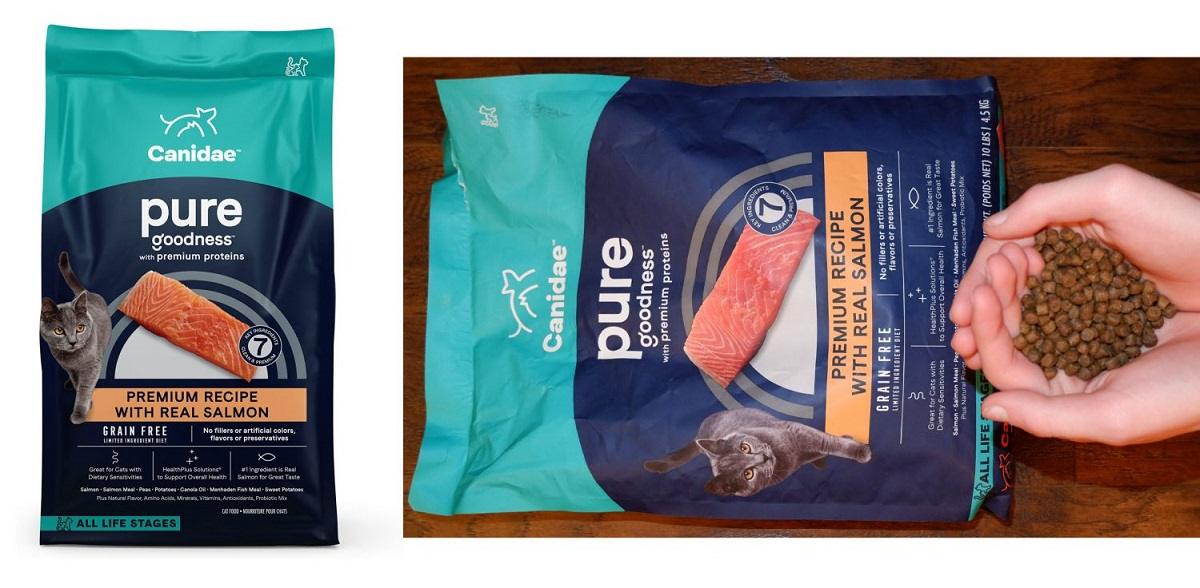The 5 Best Cat Foods For Constipation
This page contains affiliate links. We may earn money or products from the companies mentioned in this post through our independently chosen links, which earn us a commission. Learn More
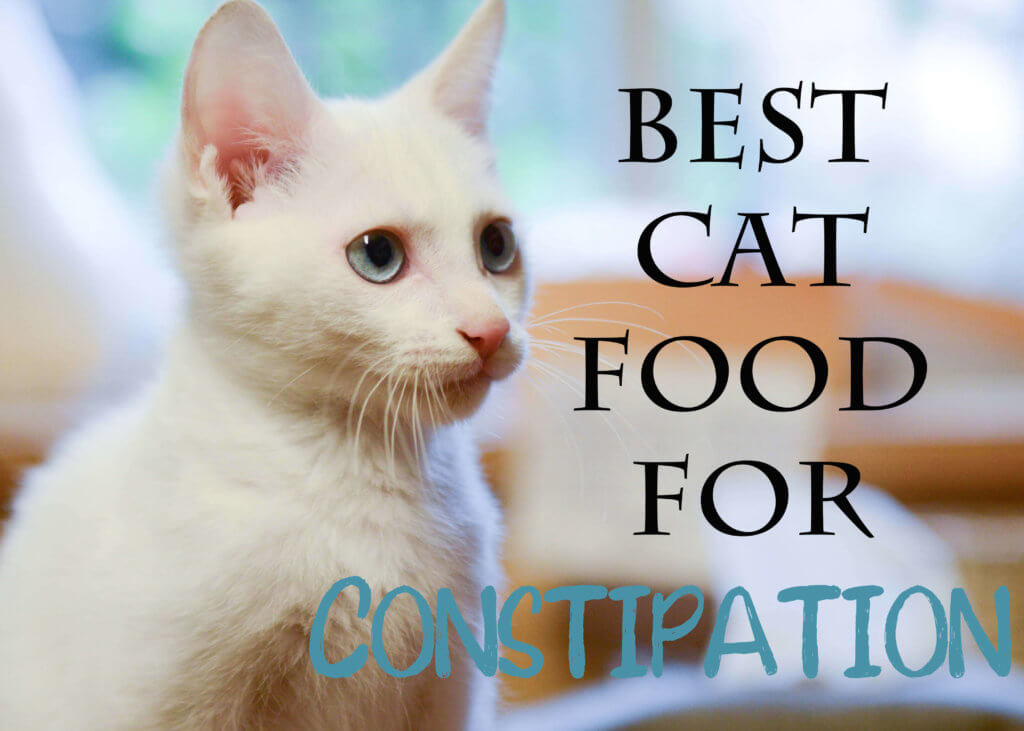
If your cat is notorious for not drinking enough water, he may be prone to constipation. Constipation is never normal and can lead to a lot of suffering and a poor quality of life for your kitty. Occasional constipation is common in cats and is usually nothing to worry about.
The Best Cat Foods For Constipation Comparison Chart
| IMAGE | PRODUCT | |
|---|---|---|
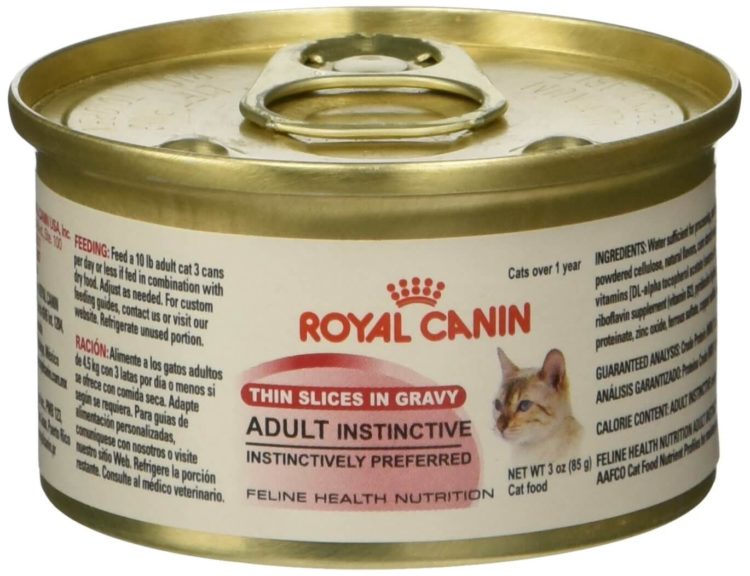 | Best Rated
| VIEW LATEST PRICE → |
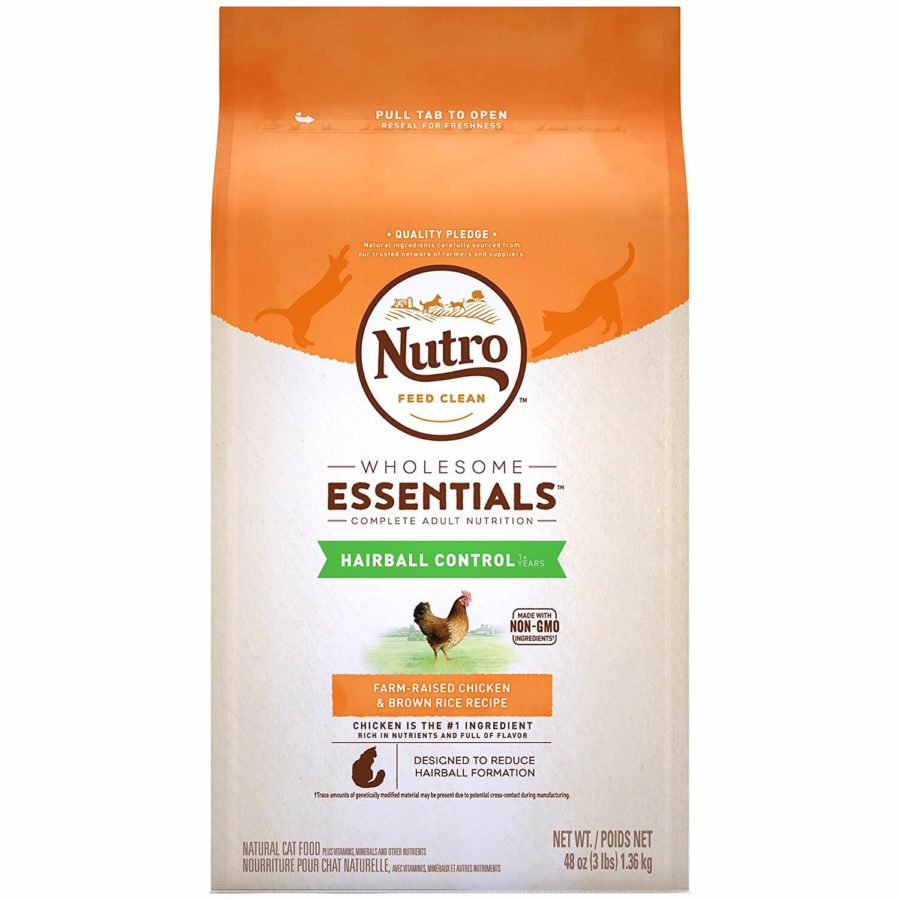 | Runner Up
| VIEW LATEST PRICE → |
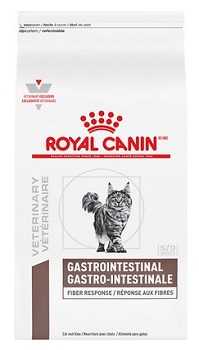 | Best High Fiber
| VIEW LATEST PRICE → |
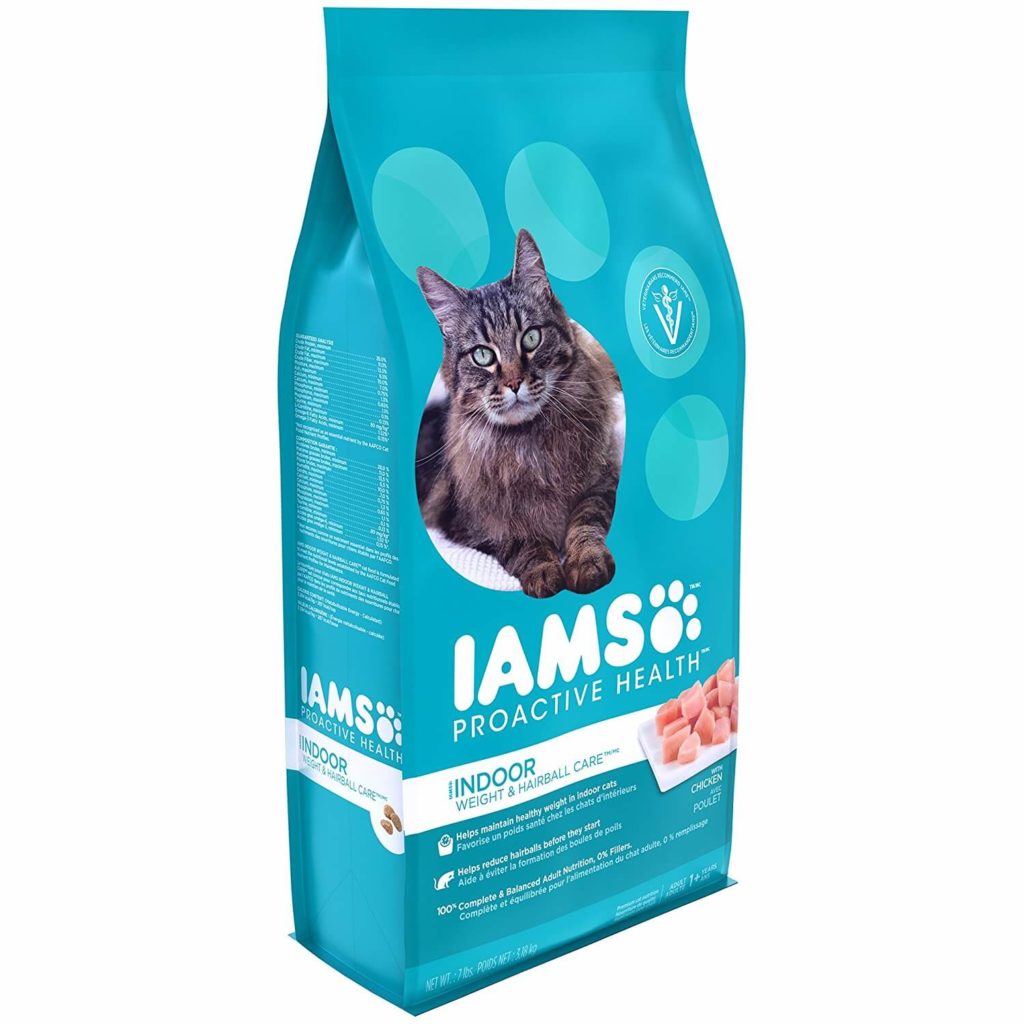 |
| VIEW LATEST PRICE → |
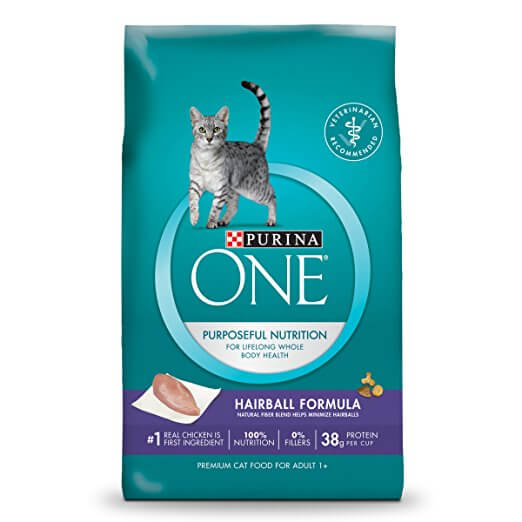 |
| VIEW LATEST PRICE → |
A change in cat food could remedy the issue if there are no underlying causes. If constipation becomes a consistent problem, you need to see a veterinarian. Keep reading to learn the causes, treatment and suggested cat food, relating to your cat’s constipation.
Best Cat Food For Constipation
#1 Royal Canin Feline Health Nutrition
Product Info:
- Price: ~$0.5/ Oz
- Food Type: Wet
- Made In: USA
- Protein: 10.5% Min
- Fat: 1.9% Min
The Good
- Maintains healthy coats and skin
- Soft and easy for cats to eat
- Low in phosphorus
The Bad
- On the pricey side
- May be rich for some cats stomachs
Listed as our best canned cat food for constipation, Royal Canin Adult Instinctive is formulated to provide your adult cat with an appealing formula they will enjoy at each feeding as well as features a moderate energy level to help maintain your adult cat’s ideal weight. Royal Canin has formulated to be instinctively preferred by adult cats.
That means your cat gets a formula it loves while getting the precise nutrition it needs at each and every feeding..
Reduced phosphorus levels help support kidney health in older cats. Also the tender thin slices in gravy are easier on the sensitive teeth and gums of cats.
#2 NUTRO Wholesome Essentials
Product Info:
- Price: ~$1.7/ Ib
- Food Type: Dry
- Made In: USA
- Protein: 21% Min
- Fat: 13% Min
The Good
- Contains natural fiber
- Non GMO
- Controls hairballs
The Bad
- Price on the high side
- Complaints of loose stools
NUTRO Wholesome Essentials Hairball Control Adult Cat Food starts with the 1st ingredient being chicken and contains a unique blend of whole grains. This natural cat food provides a fiber blend to help minimize hairball formation and essential antioxidants, such as vitamin E, for a healthy immune system, plus vitamins, minerals and other nutrients.
This formula also contains omega 6 fatty acids in order to promote healthy skin and a soft, shiny coat. NUTRO Food for Cats is always made with Non-GMO ingredients and has no artificial flavors, colors or preservatives.
#3 Royal Canin Veterinary Diet Dry Cat Food
Product Info:
- Price: ~$5.6/ Ib
- Food Type: Dry
- Made In: USA
- Protein: 29% Min
- Fat: 13% Min
The Good
- High fiber
- Improves intestinal health
- Eases strain on cats digestive system
The Bad
- High price
- High calories
Royal Canin veterinary diet feline gastrointestinal he dry cat food is a high energy, highly digestible, palatable, complete and balanced cat food formulated to aid in the management of acute and chronic gastrointestinal disease in adult cats and kittens.
This food may be prescribed for cats with the following conditions: Acute and chronic gastroenteritis in cats and kittens vomiting idiopathic diarrhea to improve body condition score in thin cats short bowel syndrome intestinal parasites.
#4 IAMS Proactive Health Dry Cat Food
Product Info:
- Price: ~$1.5/ Ib
- Food Type: Dry
- Made In: USA
- Protein: 30% Min
- Fat: 11.0% Min
The Good
- High fiber formula
- Contains no fillers
- High quality food for the price
The Bad
- Sensitive stomachs may not handle well
- Contains grains
- Contains by products
IAMS is veterinarian recommended. It is formulated with essential nutrients including calcium & potassium to help keep your cats heart strong. This cat food is made for indoor cats and controls weight and reduces hairballs. High quality protein from chicken helps maintain healthy muscles and provides the amino acids essential to carnivorous animals.
The high fiber blend, including beet pulp, not only helps reduce hairballs but a mix of protein and carbs contribute to healthy energy levels for your cat.
#5 Purina One Hairball Formula Cat Food
Product Info:
- Price: ~$1.2/ Ib
- Food Type: Dry
- Made In: USA
- Protein: 34% Min
- Fat: 14% Min
The Good
- Natural fiber
- Veterinarian recommended
- Low cost
The Bad
- Sensitive stomachs may not handle well
- Contains meals
Purina ONE Hairball Formula adult dry cat food is made with real chicken as the #1 ingredient. This dry cat food provides 38 grams of protein per cup.
The easily digestible formula contains 0% fillers and contains vitamins and minerals for well-rounded nutrition, to meet 100% of your adult cat’s requirements. The special blend uses natural fiber to help control hairballs.
Symptoms
If you notice your cat straining to defecate, tiny or hard feces and/or not defecating for days you may need to investigate. Cats with constipation or obstipation may exhibit the following signs:
- Infrequent or no defecation
- Defecating outside the litter box
- Small quantities of feces
- Small amount of liquid stool with mucus or blood
- Vomiting
- Lack of appetite
- Straining to defecate
- Hard, dry feces
- Depression
Veterinarians may be able to feel your cats belly to detect firm feces in the intestines. In overweight cats, however, abdominal fat can limit a veterinarian’s ability to feel fecal material in the intestines.
In these cases, an x-ray may be necessary to assess the problem. In the case of obstipation or megacolon, the colon will be greatly stretched beyond its normal size.
On occasion an endoscopic exam may be necessary. Anesthesia is required for this procedure and a tube is inserted in the rectum, containing a small camera. This allows the veterinarian to look inside the rectum and colon for abnormalities such as narrowing of the colon or tumors that may prevent feces from passing.
A biopsy of the tissue may also help identify other health issues that are causing constipation. Your Veterinarian may also recommend blood work to look for underlying diseases that may cause dehydration leading to constipation.
Causes
Several things can cause your cat’s constipation like an intestinal blockage, stress, lack of exercise, not enough water, arthritis and so on. Constipation is a condition in which cats pass feces less often or in smaller amounts than normal.
Feces are usually hard and dry, which may cause your cat to strain or have difficulty passing feces. While constipation may occur periodically, obstipation is a severe form of constipation, in which defecation is impossible or nearly impossible. The cause of constipation and obstipation is believed to be multi-factorial. Some of the potential causes include:
- Tumors
- Lack of exercise
- Decreased water intake
- Dehydration
- Nerve damage
- Blockages from hairballs or other foreign objects
- Reluctance to use the litter box because of stress or changes
- Arthritis, making it painful to squat
- Medications
- Trauma
Treatment
Treatments for your cats constipation can vary, depending on the degree of constipation and the amount of discomfort. If the constipation is mild, your veterinarian may supplement your cat’s diet with fiber, such as canned pumpkin, bran or psyllium.
Other medications, such as stool softeners, laxatives and motility modifiers, may help, as well. If a health condition, like kidney disease, is causing dehydration and constipation, treating the problem and re-hydrating your cat will help.
Increasing water consumption is key to help constipation in cats and always provide multiple fresh water sources. You can try a dripping faucet or a continuous flow cat water fountain. If your cat eats dry food consider switching to wet food to increase his water intake. For more severe forms of constipation an enema may be necessary.
If your cat is diagnosed with megacolon, the diameter of the colon can sometimes be stretched so far that the muscles of the digestive tract are permanently damaged. If this happens, surgical removal of the affected portions of the colon may be necessary to save your cat’s life.
Conclusion
Most cats with constipation problems can be managed without surgery and they will continue living normal, healthy lives. If your cat requires surgery to correct the mega-colon, the prognosis is good. Whatever the cause, do not ignore your cat’s constipation.

